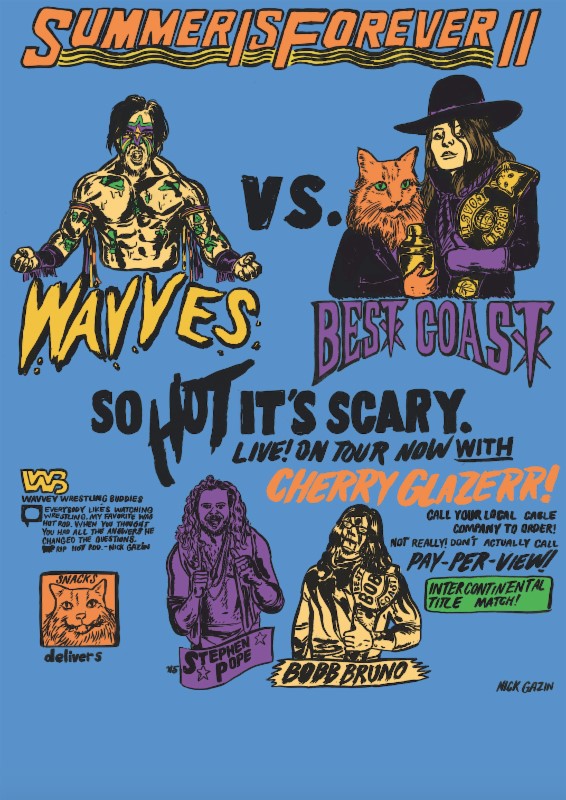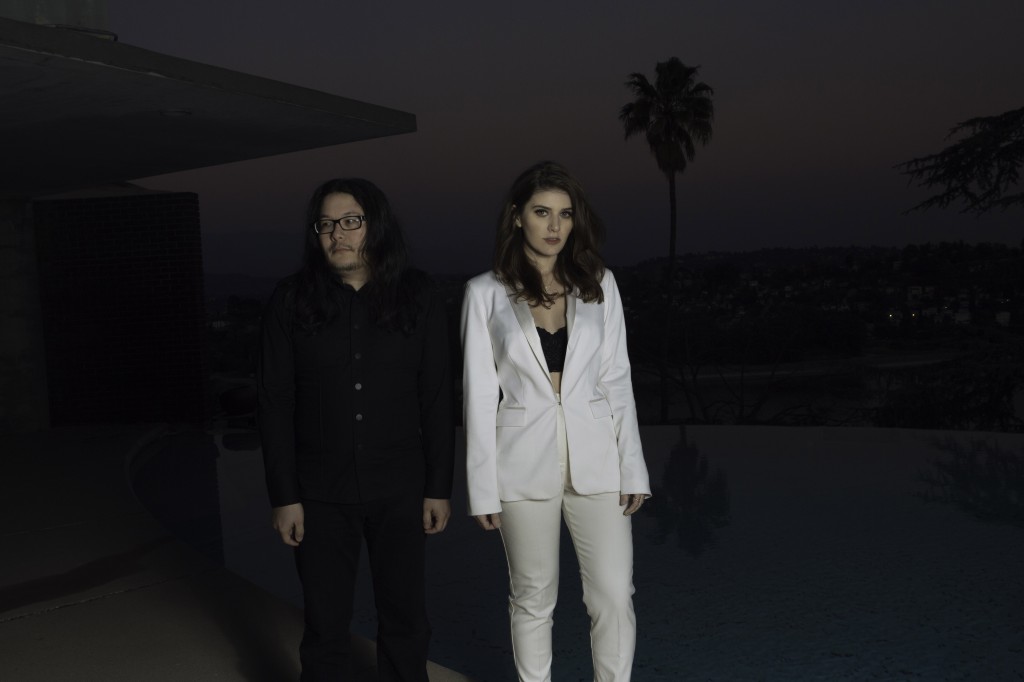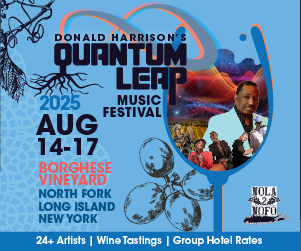Best Coast and Wavves will bring their Summer is Forever II Tour to New Orleans’ Joy Theater this Saturday, February 13. The series of shows marks a follow up to the indie darlings’ first joint tour, a 2010 outing of the same name (minus the II, for obvious reasons).
 Founded in Los Angeles in 2009, Best Coast is the work of singer-songwriter/guitarist Bethany Cosentino and multi-instrumentalist Bobb Bruno. The pair–known for their gentle, lo-fi sound– will be performing in support of their 2015 album California Nights. The release finds the band refining their lyrical and sonic palette over 12 introspective tracks that dive into the grittier side L.A.’s glitz and glamour, as well as the darker side Cosentino’s mind. As she explains in her “mission statement” for the album: “I think that to an outsider, California, or more specifically Los Angeles, seems like it’s this amazing place with perfect weather and sunny skies with just the right amount of clouds and tall palm trees. And let’s face it, it kind of is – but there are also a lot of other things here — crime, homelessness, and some of the most spirit-crushing elements of the entertainment industry that outsiders never see.”
Founded in Los Angeles in 2009, Best Coast is the work of singer-songwriter/guitarist Bethany Cosentino and multi-instrumentalist Bobb Bruno. The pair–known for their gentle, lo-fi sound– will be performing in support of their 2015 album California Nights. The release finds the band refining their lyrical and sonic palette over 12 introspective tracks that dive into the grittier side L.A.’s glitz and glamour, as well as the darker side Cosentino’s mind. As she explains in her “mission statement” for the album: “I think that to an outsider, California, or more specifically Los Angeles, seems like it’s this amazing place with perfect weather and sunny skies with just the right amount of clouds and tall palm trees. And let’s face it, it kind of is – but there are also a lot of other things here — crime, homelessness, and some of the most spirit-crushing elements of the entertainment industry that outsiders never see.”
I caught up with Costenino to discuss the new record, how Best Coast’s fuzzy music translates to a live setting and more. She also shared a delightful, if fairly typical, story about visiting Bourbon Street on her first trip to New Orleans.
You’re kicking off a joint tour with Wavves tonight. What inspired you to team up with these guys?
We did the Summer is Forever Tour five years ago with Wavves and we were just kind of brainstorming ideas for touring in 2016 at the end of last year. I just ran the idea by [Wavves frontman] Nathan [Williams] and said, “You know, we both put records out this year, we did this tour several years ago. I know, and you know, that there are a lot of people that didn’t get to come to the first one.” So we went back and forth about it and then, before I knew it, it was actually a thing that was happening again. So yeah tonight’s the first, the first show [in Austin, TX] and we’re very excited about it.
You’ll be returning to New Orleans in a couple of days, I know you guys were here not too long ago. Do you have any good stories from your time here? Any special connection to this city?
I really love New Orleans. The first time I actually ever went to New Orleans, my dad took me, because my dad’s a musician. He was playing at some shows in New Orleans with a band he was touring with at the time, and he took me there. I think I was maybe 16 or 17. He bought me a Hurricane, so my dad aided in under age drinking in New Orleans. I just kind of cruised Bourbon Street with my dad and that was my first experience with it.
I think the next time I was there was on tour with Best Coast, so I’ve always had a really good time there. It’s definitely a place that I will always relate back to my first experience there, being with my father and going there to see him play a show. Now I’m returning to that city doing the exact same thing myself, so it’s pretty cool. But now I’m old enough to drink.
You took the unusual, though also rather illuminating, step of releasing a mission statement for your new album, California Nights. You mention being inspired by the less understood elements of Los Angeles that intrigue you–the sort of darker side. I feel like a lot of cities, including New Orleans, have a similar thing going for them. There’s an outside perception and then another way that things are understood for the people that live there. Do you think that these themes on California Nights are relatable for people that aren’t from California?
I try really hard–even though the band has a very kind of California aesthetic, visually and also sonically–I try really hard to not make the music necessarily about California and feel like it’s only meant for people that are from California or understand California. I know there are a lot of people that don’t like California and that’s totally fine, you’re allowed to like and dislike whatever you want in life. With this record, I aimed to really touch base with the idea that L.A. is a very picturesque place, but underneath all of that there is a lot of darkness and grittiness, and I think that that’s sort of the way that I see Best Coast as a band. I think that people, when they hear our music, think of it as being very sunny and upbeat and happy. I think that lyrically, at least thus far, I’ve tended to write a bit more about the darker side of things and feelings and emotions. I try to just channel all of my negative energy, I guess, into songwriting and just get stuff off my chest. So I think that the record can be listened to by somebody that is from Antarctica. I don’t think it really matters if you’re from California or familiar with California at all. I think that the element of California exists in the kind of the tones, the melodies and, obviously, in the visuals for the record. But I don’t think, necessarily, that the music itself is meant for people that only identify as being California fans.
 The band is officially you and Bobb as a duo, so how do you translate your synthy, fuzzy arrangements into a full band setting?
The band is officially you and Bobb as a duo, so how do you translate your synthy, fuzzy arrangements into a full band setting?
The band has had various lineups and identities. When it first started, it was just Bobb and I playing with a mini disk. Like Bob would just put all of the drum parts, which at the time were electronic, on a mini disk and we would just play to that. Then it evolved into having a live drummer, and then from that it evolved into adding a bass player. Now we play as a five piece, and it’s been a very exciting and organic growth. When I think back to the way the band was live five years ago when we did the Summer is Forever Tour with Wavves, it’s totally a different interpretation, now than it was then. Especially for a record like California Nights, it really feels best to have five players on stage to carry out the bulkiness that the record has and create it in a live setting. And also, having that many people allows me to sort of put the guitar down and just sing for a bit, which is really what I do. I sing, I don’t consider myself a guitar player necessarily. I’m decent at playing the guitar, but I don’t think I’m like some great guitar player, so I actually would prefer to just sing. It’s kind of nice to have that option now, with the band being as fleshed out as it is.
Do you think that your fans are getting a different sound when they come see the live show than they would get on the recorded material?
For sure. That’s something that I’ve always strived to do. I don’t ever really enjoy going to see bands and just watching them thinking it sounds like an exact replica of their record. I think, when a band can replicate their record, it shows true talent, and I think it can be very difficult to make something sound the way it does in a recorded format. But I also think that the way your audience interacts with your live performance should be a different way than they engage with a record. I think that if you want to listen to a record, you can just sit at home and listen to a record. If you want to go see a band perform, and hear things louder than you would just sitting in your room listening to something, or you want to feel the energy, I think that seeing a live performance is ultimately very important for that. I think that we definitely try to translate our music a bit differently on stage, and by that, I mean we play it a bit louder and faster. When I listen to our songs on the record, I’m actually baffled at how slow they are. We play everything so much faster than it is recorded. So sometimes when I listen back to a song like “Boyfriend,” for example, I’m just like, “Holy shit, how is that so slow?” because I’m so used to playing it as fast as we do now.
California Nights, all three of your albums, really, sound a little bit different than each other. There’s significant departures between all three of them. When you begin the writing process, is there a conscious decision to go in a different direction with each album, or is it just an organic reflection of where you are at that point?
It’s definitely an organic reflection of where I am. The way that I really navigate life, in general, is to sort of take things one step at a time, day by day. Go with the flow as much as I can. I tend to overthink things a lot, so I feel that when I write, that is the one place where I’m doing the least over thinking that I do. When I sit down to write, I really just sit down and come up with a melody,put some lyrics down, get feelings and emotions and situations off of my chest and basically put them into song format. As time goes on, we get into the studio and then Bobb starts to put his spin on things and adds all of the stuff that Bobb adds to the music and the songs. At that point, that’s the time when we start feeling like this is going to go in this direction or that we want this specific song, or this specific part in a song, to sort of be influenced by this one genre or this moment in another song that we really like or whatever. So I think that it is a very organic process, but I also think that the studio is really where things start to develop feeling, when they can be differentiated between one another. When I’m actually just sitting at home writing stuff, I’m not necessarily thinking like, “Okay, I have to do something totally different.” I’m just getting the core of the song down, and then from that point on is when things start to veer off into other directions.
What’s next for Best Coast when the tour wraps up and the album cycle is through? Do you and Bobb still have a positive working relationship going forward?
Yeah, Bobb and I have probably the most positive working relationship I’ve ever had with anybody I’ve ever worked with. Like ever, in my entire life. And I’ve worked with a lot of people, not just in music, but in general. He and I are not just great collaborators, but we’re good friends and we have a ton in common, and we very much enjoy each other’s company. I think, when this tour is over, I am probably going to try to write some new stuff, and spend some time at home just kind of experimenting with the writing process and maybe taking a stab at doing things differently. Maybe this time it’s writing lyrics before writing a melody, or pushing myself to do things a bit differently. We also have some other stuff that I’m in the process of conjuring up right now that I can’t necessarily discuss yet, because it’s still in the very early stages of being figured out. But I’m constantly brainstorming and coming up with ways that I can keep myself and the band busy. So there’s a lot more to come from Bethany and Best Coast, for sure.
Best Coast and Wavves will co-headline the Joy Theater on Saturday, February 13. They will be joined by supporting act Cherry Glazerr. Tickets for the show are available here.




